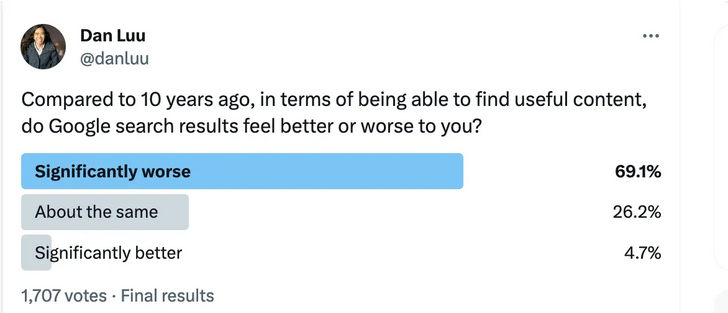Forgotten Weapons
Published Jan 3, 2024The best of the submachine guns made in Croatia during the Homeland War was the Ero, made by a company called Arma. The Ero is a basically perfect, parts-interchangeable copy of the Israeli Uzi that was developed in 1992 and adopted into Croatian Army service in 1993. The only really distinguishable difference between the Ero and Uzi is the Ero’s use of Croatian-language selector markings (and receiver markings). Between 15,000 and 20,000 were produced, and they remained in service long after Croatian independence was secured. They were issued to vehicle crews, military police, special forces, and reconnaissance units.
Arma was a subsidiary of a major Croatian engineering firm, and after the Ero production it developed the APS-95 Croatian AK (which is a story for another video). They were a very competent company, but the details and quality of the Ero are so good that I believe it must have been made with tacit or explicit assistance from Israel. Croatia does have a strong Jewish community, and there were rumors during the war that the technical data package for the Uzi did find its way into Croatia. There is no official acknowledgement of this happening, but it would certainly not be hard to believe. But however the development happened, the result was a very high quality submachine gun.
A big thanks to the Croatian Police Museum (Muzej Policije) in Zagreb for giving me access to film this cool piece for you! Check them out at: https://muzej-policije.gov.hr
(more…)
April 5, 2024
Ero: The Croatian Uzi (With Israeli Help?)
April 3, 2024
Canada’s The Idler was intended for “a sprightly, octogenarian spinster with a drinking problem, and an ability to conceal it”
David Warren had already shuttered The Idler by the time I met him, but I was an avid reader of the magazine in the late 80s and early 90s. I doubt he remembers meeting me, as I was just one of a cluster of brand-new bloggers at the occasional “VRWC pub nights” in Toronto in the early aughts, but I always felt he was one of our elder statesmen in the Canadian blogosphere. He recalls his time as the prime mover behind The Idler at The Hub:

Some late Idler covers from 1991-92. I’ve got most of the magazine’s run … somewhere. These were the ones I could lay my hands on for a quick photo.
This attitude was clinched by our motto, “For those who read.” Note that it was not for those who can read, for we were in general opposition to literacy crusades, as, instinctively, to every other “good cause”. We once described the ideal Idler reader as “a sprightly, octogenarian spinster with a drinking problem, and an ability to conceal it”.
It was to be a magazine of elevated general interest, as opposed to the despicable tabloids. We — myself and the few co-conspirators — wished to address that tiny minority of Canadians with functioning minds. These co-conspirators included people like Eric McLuhan, Paul Wilson, George Jonas, Ian Hunter, Danielle Crittenden, and artists Paul Barker and Charles Jaffe. David Frum, Andrew Coyne, Douglas Cooper, Patricia Pearson, and Barbara Amiel also graced our pages.
I was the founder and would be the first editor. I felt I had the arrogance needed for the job.
I had spent much of my life outside the country and recently returned to it from Britain and the Far East. I had left Canada when I dropped out of high school because there seemed no chance that a person of untrammelled spirit could earn a living in Canadian publishing or journalism. Canada was, as Frum wrote in an early issue of The Idler, “a country where there is one side to every question”.
But there were several young people, and possibly many, with some literary talent, kicking around in the shadows, who lacked a literary outlet. These could perhaps be co-opted. (Dr. Johnson: “Much can be made of a Scotchman, if he be caught young.”)
The notion of publishing non-Canadians also occurred to me. The idea of not publishing the A.B.C. of official CanLit (it would be invidious to name them) further appealed.
We provided elegant 18th-century design, fine but not precious typography, tastefully dangerous uncaptioned drawings, shrewd editorial judgement, and crisp wit. I hoped this would win friends and influence people over the next century or so.
We would later be described as an “elegant, brilliant and often irritating thing, proudly pretentious and nostalgic, written by philosophers, curmudgeons, pedants, intellectual dandies. … There were articles on philosophical conundrums, on opera, on unjustifiably unknown Eastern European and Chinese poets.”
We struck the pose of 18th-century gentlemen and gentlewomen and used sentences that had subordinate clauses. We reviewed heavy books, devoted long articles to subjects such as birdwatching in Kenya or the anthropic cosmological principle, and we printed mottoes in Latin or German without translating them. This left our natural ideological adversaries scratching their heads.
March 12, 2024
Vektor CP-1: Recalled to the Mother Ship
Forgotten Weapons
Published Dec 8, 2023The Vektor CP-1 was developed by Lyttleton Engineering Works (who owned the Vektor brand) in 1995 for a South African Police contract. They lost that contract to the Republic Arms RAP-401, but decided to put the CP-1 onto the civilian market instead. It was a pretty decent seller for them, and after a couple years they started importing it into the US. Things went bad when it turned out the the gun wasn’t quite drop-safe, and in late 2000 they were recalled for a repair. Some were repaired and returned to owners, but a great many were simply repurchased by Vektor instead. In light of the recall and potential future problems with the US legal outlook, Vektor USA was dissolved circa 2001.
Mechanically, the CP1 is a gas-delayed blowback pistol in 9mm Parabellum. It came with 12- and 13-round magazines (10 rounds in the US, because of the Assault Weapons Ban). It was hammer fired, and used a polymer frame (the first such made in South Africa). Its futuristic design lines are very deliberate, and its biggest shortcoming is a fairly heavy trigger, for being single action only. It has a somewhat unorthodox trigger safety, and also a Garand-style manual safety in the front of the trigger guard.
In today’s video, we will take a look at both an original configuration example and also one rebuilt after the recall, with a new firing pin block mechanism.
(more…)
January 15, 2024
SS77: South Africa Builds a GPMG on the Shoulders of Giants
Forgotten Weapons
Published 13 Oct 2023In the 1970s, South Africa began looking for a domestic-production GMPG to replace its inventory of FN MAG machine guns. The MAG was an excellent weapon, but the ones in South Africa were getting old and worn out, and with the country under international embargo over Apartheid, new guns and parts were not available from FN.
The SS-77 (named for its two designers, Richard Joseph Smith and Lazlo Soregi) began development in 1977, with initially prototypes built by Lyttleton Engineering Works in 1978. The design took elements from several other excellent machine guns — the side-locking action form the SG43 Goryunov, the barrel release and feed mechanism from the MAG, and the gas system from the PK. After an extensive series of testing and tweaking, the gun was formally adopted by the South African Defence Forces in 1986, and went into serial production. Despite the development cycle, the guns still proved to have significant problems in the field. The gas piston was liable to break, along with problems of broken extractors, loose pins, and other issues. The guns were actually recalled from military service and rebuilt in the early 1990s. Following that redesign program, the gun has proven very reliable and successful in service.
A Mini-SS design was also adopted, essentially the same gun scaled down to 5.56mm. Initial plans were to produce a conversion kit to allow the regular SS-77 to use either caliber, but these were never actually produced.
(more…)
January 13, 2024
The ongoing encrapification of the internet – “When I hear the phrase ‘web platform’ I reach for my gun”
Ted Gioia used to be a techno-optimist, eagerly looking forward to ever-improving online experiences. He, like so many of us, has reluctantly come to the conclusion that those hopes are fading out of sight:
I once loved new technology. I lived in the heart of Silicon Valley for 25 years, and was bursting with enthusiasm for its free-wheeling mission to transform the world — and have some fun along the way.
When the Worldwide Web made its debut, I thought I’d found Nirvana. It was like tech was turning everything into a game.
But look at me now. When I hear the phrase “web platform” I reach for my gun.
Where did it go wrong? Did I just get old and embittered? Or did something change in the tech world?
Let me share a story that might help us decide.
This is a story about the birth of the search engine.
There were no commercial search engines back in 1993. But a Stanford student named David Filo compiled a list of his 200 favorite websites.
His buddy Jerry Yang helped turn this into an online list. They called it “Jerry’s Guide to the Worldwide Web”. Filo and Yang added new websites every day to their list — and classified them according to categories.
This turned into Yahoo.
Here’s my favorite part of the story: These two students didn’t even know they were running a business.
They did it for fun. They did it out of love. They did it because it was cool. “We wanted to avoid doing our dissertations”, Yang later explained.
But a venture capitalist named Mike Moritz heard about Filo and Yang, and tracked them down. The founders of Yahoo were living in total squalor in a trailer littered with stale food and pizza boxes, strewed alongside sleeping bags and overheating computers. A phone rang constantly — but nobody bothered to pick it up.
Moritz was dismayed by this dorm-room-gone-wild ambiance, but he was impressed with the students’ web searching technology. So he asked them the obvious question: How much did they plan to charge users?
Filo and Yang had no answer for this. They wanted to give their tech away for free.
Yahoo wasn’t even selling ads back then. It wasn’t tracking users and selling their private information. It didn’t even have a bank account.
But it was a community and had millions of users.
That was a word you heard frequently in Silicon Valley in the early days. People didn’t build web platforms — they formed online communities.
It was a FUN community. People enjoyed being a member. Even the absurd name Yahoo was part of the game — although early investors hated it.
Yang’s job title was “Chief Yahoo”. Filo’s position was “Cheap Yahoo”.
Investors always hate those kinds of things.
But a new web business, back then, was expected to have a silly name. Here are some of the websites launched in the mid-1990s.
Moritz wanted to turn Yahoo into a business. And the founders realized that their fun community was growing faster than they could handle in their down-and-out trailer. So they sold out 25% of Yahoo for $1 million.
October 20, 2023
QotD: The Gen-X-Files
Just to take one small example, The X-Files was hitting its stride in 1994, and I was smack dab in the target demo: Nerdy college dude. And yet, all the show’s basic assumptions rubbed me wrong. Mulder was obviously supposed to be cool, but as I saw it, the show went out of its way to make him look like a loser — no girlfriend, no family, not even a pet, spanks it to porn (an at least somewhat risqué thing to imply on network tv, even at that late date). More than that, though, was the show’s attitude towards the government. You’re asking me to believe that the government — Bill Clinton’s government — is competent enough to keep an alien conspiracy under wraps?
I wasn’t in any way political back then. If forced to pick a side, I’d have been reflexively liberal, like all college kids are. I didn’t know the first thing about what was going on out in the world, let alone in the corridors of power in Washington, but even I found that pretty farfetched.
More importantly, the zeitgeist I saw was rapidly changing. X Files creator Chris Carter was born in 1956 and grew up in sunny SoCal (his wiki entry makes sure to give us his favorite surfing stance), so he more than most probably wrestled with the dilemma of how to bring Flower Power into Ronald Reagan’s 1980s. Hence the weird disconnect of the early 1990s, when Bill Clinton got his groovy, greasy, chicken-fried hippie self into the White House: The same people who, in their own college days, had nothing but hatred for the CIA and their domestic Mini-Me, the FBI, were all of a sudden kinda sorta coming around on the idea that The Feds are our friends — since, you know, the Feds are now us. It’s probably not a coincidence that Agent Mulder, FBI, was the star of The X-Files.
Explains a lot about “Gen X”, don’t it? When every single authority figure in your life, from the President on down, tells you to Fight the Power, the only way out of the clown show is to be, you know, like, whateverrr about everything — learned helplessness, 1994 version.
But smoked-out, flannel-clad, and apathetic is no way to go through life, and so we turned into a generation of suck-ups and toadies. Oh, the lunatic Marxists in the Teachers’ Unions want to encourage kids to “transition” in elementary school. Dude … you know, like, whateverrr. The college kids of 1994 are the middle managers, the Deep Staters, the lever-pullers of 2021. It’s working out about as well as you might’ve expected. You don’t need Agent Mulder to solve this mystery.
Severian, “1994”, Rotten Chestnuts, 2021-04-15.
October 12, 2023
QotD: America before identity politics
Lest we’re tempted to make excuses for Leftists by putting all this down to their goldfish-like attention spans, note how fast they can change. I remember the Gay Nineties, when the one true way to be queer was to have as much anonymous sex as possible. […] And yet, by 2015, “gay marriage” was a sacred constitutional right because, we were told, all gay men really want to do is settle down in a strictly monogamous relationship. I found myself asking “Have you ever actually met any gays?” to actual gays, so bizarre was this sudden flip – surely you, of all people, know …1
Pick even minor items of their catechism (if so all-encompassing a creed as Leftism can be said to have “minor” items). It’s an article of the One True Faith, for instance, that seven out of every five college girls are raped the minute they set foot on campus. And yet … free college! Yeah, Bernie, let’s march a whole bunch of new rape victims straight into the frat house, on the taxpayer’s dime. Makes sense. And speaking of free college, y’all know how you love to wave your degrees around, because that’s how you win at Internet? How’s that going to work, now that everyone has a Gender Studies degree?
Yeah, ok, I know, if they could see the obvious consequences of their actions, they wouldn’t be Liberals in the first place. But still — all of this is so obvious, so determinedly cattywampus to reality, that it has to be by design. T.S. Eliot was right — it’s “gesture without motion”, but I’ll be damned if I can figure out how they pull that off. Which is why I suspect it’s actual, neurological changes in their brains, brought about by too much soy.
Severian, “The Hollow Men”, Rotten Chestnuts, 2020-12-19.
1. Gosh, wasn’t The America That Was a hoot? If you’re under 35 you’ll just have to trust me on this, but there was a point in American history when homosexuals didn’t have to be 1000% gay all the time, to the exclusion of everything else. I know, I know, and it gets weirder – back then, you could even be friends with a homosexual and not have homosexuality come up for days, weeks, even months at a time! You and Steve went to different bars on Saturday night, but other than that, you pretty much just carried on treating each other like, you know, people. And I know this sounds crazy, but even when talking about relationships it wasn’t a big deal. “Hey, Sev, how are things with Becky?” “Pretty good, man, how’s it going with Todd?” And … that was pretty much it. Sounds like life on Mars now, but I swear to you, it happened.
August 23, 2023
Slovenian SAR80: Sterling Out-Simplifies the AR-180
Forgotten Weapons
Published 15 May 2023The British Sterling firm designed the SAR-80 (specifically, their engineer Frank Waters) as a very simple rifle to sell to countries outside the main NATO/Warsaw Pact spheres of influence. Sterling ended up getting a license to produce the AR-18 though, and didn’t put Waters’ design into production.
When the newly formed Chartered Industries of Singapore came looking for a rifle to produce, the SAR-80 design was a chance for Sterling to sell a production license. CIS needed something to produce domestically to equip the Singaporean Army, and the SAR-80 met their needs. After selling the rifles to their own Army, the company went looking for export clients. They found a few, including Croatia, the Central African Republic, and Slovenia. A total of about 80,000 SAR-80 rifles were made, and this is one of the Slovenian-contract examples.
(more…)
August 5, 2023
The rotten luck of the American Orient Express
Train of Thought
Published 5 May 2023In today’s video, we take a look at the American Orient Express, an attempt made by several businesses to replicate the charm and appeal of the real deal that just kept running into bad luck.
(more…)
July 16, 2023
QotD: The girls’ locker room at school
One of the few skills I’ve retained from my teen years in the public school system of mid-Nineties America is the ability to get undressed in front of people without ever actually being naked. It is an art form particular to girls of a certain age, mastered in the locker room in the five minutes between gym class and the rest of the day: a sort of anti-strip tease in which you take off your sports bra while still wearing a T-shirt, always taking care not to expose so much as a millimetre of bare breast.
This method of bra removal was part of a larger, elaborate set of rules, unwritten but ironclad, whereby the locker room was a place to be naked as little as humanly possible. Being in your underwear was okay, but only if you were clearly making haste to put on more clothing. The bathing facilities, it was understood, were for decoration only and not to be used; people still talked about the time a few years back when a girl named Katie, a transfer student from some other country, or possibly another planet, actually took a shower after gym class one day — here you would lower your voice to a dramatic whisper — in the nude.
This cautionary tale of Katie revealed the true nature of our shared pathology: it wasn’t just that we didn’t want to be seen naked, or to see each other naked. It was that allowing yourself to be seen naked signified something sinister about you. You had to be some kind of pervert, an exhibitionist weirdo who lacked the good sense to be ashamed of your body — which was, of course, disgusting, and should be hidden at all costs.
Obviously, this was not a healthy way to be. Obviously, we all had eating disorders. Obviously, the kids were not, in this particular case, all right — or right at all. It’s strange, then, that in 2023, the neuroses of a bunch of 15-year-old girls trying to hide their developing bodies from each other in an upstate New York locker room seem to have somehow become the basis for a new Western paradigm. Nudity is now seen as invariably sexual, highly suspicious, and probably dangerous, particularly to children.
Kat Rosenfield, “The case for getting naked”, UnHerd, 2023-04-12.
June 25, 2023
QotD: We won’t be seeing any rebooted TV shows from the 1990s
… most 1990s entertainment would be impossible to “reboot” now, simply because so much of it presumes a baseline level of social and especially governmental competence. Take The X-Files, for instance. The “hot take” on the show back then was that it reflected our widespread social unease with an all-powerful government. The truth is out there!
Thirty years on, we can only dream of a government competent enough to cover up contact with extraterrestrials. As someone remarked at Z Man’s the other day, our government is now so retarded, Eric Swalwell — a high-ranking member of the House intelligence committee and putative presidential candidate — couldn’t successfully bone a hooker. Sorry, gang, the aliens won’t be stopping by; they only want to make contact with intelligent life.
Severian, “Random Thoughts”, Rotten Chestnuts, 2020-12-17.
June 20, 2023
“Mendicino is a dead minister walking, and we suspect he knows it”
Belated (from me, not from them) section from this weekend’s update from the editors at The Line:
Though you may find this hard to believe, based on what’s above, we were paying attention to some other things this week. The Ottawa vortex of ridiculousness continued at its usual clip. The government continues to try and find a defensible position on Paul Bernardo’s prison transfer to a medium-security prison. Alas for Mr. Trudeau, he’s been hit by a double-whammy of bad luck. Bernardo is an emotional trigger point with probably no rival across Canada. And the PM’s point man on this file is the hapless (!) Marco Mendicino, minister of Public Safety.
Let’s be clear: your Line editors are far too Vulcan-like to possess strong feelings about the transfer of Bernardo. We are of the right age to have grown up during the era of the Bernardo rapes, murders and eventual trial. He was the boogeyman of our youth. That being said, the important thing is that he dies miserable and alone behind bars. We aren’t particularly invested in which particular prison this happens. If there was a sensible reason for him to be moved to the Quebec facility, hey, whatever. He can rot in any suitable prison as far as we’re concerned.
The issue here, and it’s ridiculous that we have to spell this out, isn’t the transfer itself. Nor are we calling upon Trudeau or the federal government to become intimately involved in decision-making for prisoners, even high-profile ones. The only thing that turned this into a huge story was the latest peek it gave us into the Trudeau government. We have been confronted with — surprise! — more incompetence and dysfunction.
Mendicino’s staff had been repeatedly told about the pending transfer; no one told the boss. The PMO had been told, too. No one told that boss, either. Why tell the boss? So that they don’t get caught flatfooted by a scandal. This is basic issues management and internal communications, and we’re being shown, yet again, that the government is terrible at this. And, absurdly, Mendicino apparently has some of the best and brightest providing the adult supervision he so clearly needs: veteran political staffers were sent to his office after he beclowned himself during the gun-control fiasco a few months ago.
And this is the problem. We don’t care which cell holds Bernardo as he slides closer to hell. We do care about yet another data point in a pattern that has emerged with this government: they aren’t on top of their files, their offices aren’t well run, ministers aren’t properly briefed, and there seems to be zero accountability anywhere in this process. It was left to the Ottawa Parliamentary Press Gallery to hunt down Mendicino like ravenous cheetahs on a wayward gazelle after Mendicino had promised to brief them, and then no-showed. He also promised to brief them again later on Thursday, and failed to show up that time, too.
We know, we know. It’s hard to believe he’d lie. Marco Mendicino? An incompetent bullshitter? Say it ain’t so.
Mendicino is a dead minister walking, and we suspect he knows it. The government is obviously hell bent on getting to the summer break without sacking the minister, because to sack him, despite his manifest and repeated failings, would be to admit said failings, and this government will never do that. If they can get to the break, they can shuffle him off to the sweet oblivion of an obscure ministry, or even the back benches later on this summer. This is just the latest example of what Line editor Gerson has observed about these guys: tactically smart, but strategically dumb.
And, ahem, call us hopelessly naïve, but maybe the politics isn’t the point here? Canadians ought to have someone in the job of Public Safety minister — kind of an important role, you’ll agree — who is competent and well-supported by excellent staff. Instead we get this shitshow and frantic politicking to avoid handing the opposition a one-day media-cycle victory. It’s a bad look on the government. But it’s nothing we didn’t already know, we guess. They aren’t here to serve Canadians. They’re here to save themselves.
April 22, 2023
QotD: The yawning vaccuum that used to be “white culture”
Current Year White people are not allowed to have a culture. Any culture. Hence, in a perverse way, hipsterism.
First: I think we can agree that there’s no such thing as a black hipster, or a Latino hipster, or an Asian hipster. What would be the point? Those groups already have a culture, in both the “personal identity” and “grievance group” sense. […]
The 1990s were the last time there was some common ground. Growing up as I did in the Tech Boom South, I saw it firsthand. It was just accepted that your Hispanic (not “Latino”, and certainly not “LatinX”) friends would have certain cultural specific things they’d have to do from time to time. If you were friends, they might invite you. If they were good friends, they wouldn’t invite you (do not, under any circumstances, go to your buddy’s sister’s quinceañera. You will meet a whole bunch of hot, horny young Mexican nubiles. You will also meet their brothers and fathers and cousins and uncles and etc., so you will spend the whole evening running around like a homo, doing everything in your power not to talk to girls. It’s torture*).
Same thing with the Chinese kids, and the Indian kids, and all the rest. You’d never see your Asian buddies on Friday nights, because that’s when they had Chinese school (yes, of course their parents would schedule something academic on a Friday night). Diwali was cool, because your friends’ moms would make those crazy-sweet Indian desserts and send you a care package (also known as “diabetes in a box”). That was just an accepted part of life, the same way those guys wouldn’t start a pickup basketball game until after 10 on a Sunday morning, because they knew we’d be in church. Nobody thought much of it, in the same way all our moms just kinda learned by osmosis to keep tortilla chips and salsa in the cupboard as an all-purpose snack (no worries about anyone’s religious food prohibitions).
This worked, because there was still enough of a monoculture back then — this is the late 1980s / early 1990s — to provide common ground. Alas, as White culture disintegrated, the other guys started subsuming their cultural identities into their grievance group identities: The Chinese kids were worried about being called “bananas” (yellow on the outside, White on the inside); the Indian kids were ABCDs (American-Born Confused Desis); and so on. And the White kids were the most anti-White of all, since they’d gone to college for a semester or two and had learned how to parrot pop-Marxism (technically, pop-Gramscianism and pop-Frankfurt School-ism and pop-Marcuse, but who’s counting?).
Thinking back on it, those were the ostentatious “slackers”; the real “Grunge” kids — White kids who found their own Whiteness “problematic” (a phrase debuting in egghead circles around that time). I always assumed it was a problem with traditional, cock-rocking masculinity — not least because that’s what all the male “Grunge” rock stars said it was — but in retrospect I think it was a rising problem with Whiteness itself. Maybe all the grievance groups had a point, and maybe they didn’t, but either way the dominant Boomer culture sucks, so what else can you do?
I know how naive that must sound now, but 30 years ago …
* It wasn’t my buddy’s fault. He warned me. But c’mon, man — his mom invited me. We’d spent the whole summer working together on his dad’s landscaping crew; I practically lived at their house. What was I gonna say, no? Looking back on it, Mrs. Rodriguez was either trying to set me up with her daughter, or was Aztec goddess-level sadistic.
Severian, “To Mock It, It Must Exist”, Founding Questions, 2022-12-29.
April 2, 2023
Vektor Mini-SS: South Africa’s Answer to the FN Minimi
Forgotten Weapons
Published 9 Dec 2022While under international embargo and at war in the late 1970s, South Africa needed a new 7.62mm GPMG. The answer was Vektor’s SS77, a design which would replace the FN MAG in South African service in the 1980s. The gun had really substantial problems for many years, and took a lot of work to revise and improve until it was finally fit for service. However, that work did result in a really excellent gun. With the US adoption of the FN Minimi as a Squad Automatic Weapon, interest developed in a 5.56mm version of the SS77.
Named the Mini-SS, this was initially envisioned as a conversion of the SS77, but that never actually came to pass. Instead, the Mini-SS was built from the ground up as a 5.56mm SAW, with a number of changes to reduce its weight (like a simple fixed polymer stock, fixed gas port, and the removal of tripod attachment points). Coming into service in the early 1990s, the Mini-SS has developed an excellent reputation.
Mechanically, both of the Vektor designs are unusual for the use of an asymmetric side-tilting bolt (like the ZH-29 and only a few other production guns). It is a very simply gun to disassemble, and has a lot of quite clever design features.
(more…)
March 16, 2023
Once it was possible to be a fully fledged techno-optimist … but things have changed for the worse
Glenn Reynolds on how he “lost his religion” about the bright, shiny techno-future so many of us looked forward to:
Listening to that song reminded me of how much more overtly optimistic I was about technology and the future at the turn of the millennium. I realized that I’m somewhat less so now. But why? In truth, I think my more negative attitude has to do with people more than with the machines that Embrace the Machine characterizes as “children of our minds”. (I stole that line from Hans Moravec. Er, I mean it’s a “homage”.) But maybe there’s a connection there, between creators and creations.
It was easy to be optimistic in the 90s and at the turn of the millennium. The Soviet Union lost the Cold War, the Berlin Wall fell, and freedom and democracy and prosperity were on the march almost everywhere. Personal technology was booming, and its dark sides were not yet very apparent. (And the darker sides, like social media and smartphones, basically didn’t exist.)
And the tech companies, then, were run by people who looked very different from the people who run them now – even when, as in the case of Bill Gates, they were the same people. It’s easy to forget that Gates was once a rather libertarian figure, who boasted that Microsoft didn’t even have an office in Washington, DC. The Justice Department, via its Antitrust Division, punished him for that, and he has long since lost any libertarian inclinations, to put it mildly.
It’s a different world now. In the 1990s it seemed plausible that the work force of tech companies would rise up in revolt if their products were used for repression. In the 2020s, they rise up in revolt if they aren’t. Commercial tech products spy on you, censor you, and even stop you from doing things they disapprove of. Apple nowadays looks more like Big Brother than like a tool to smash Big Brother as presented in its famous 1984 commercial.
Silicon Valley itself is now a bastion of privilege, full of second- and third-generation tech people, rich Stanford alumni, and VC scions. It’s not a place that strives to open up society, but a place that wants to lock in the hierarchy, with itself on top. They’re pulling up the ladders just as fast as they can.








